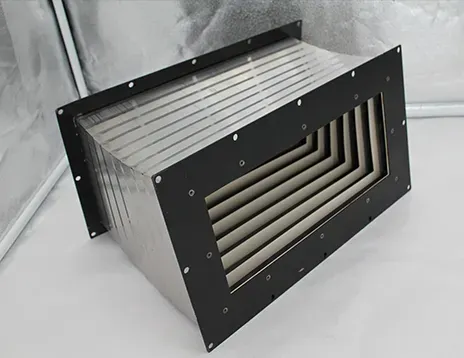corrugated metal conduit
Understanding Corrugated Metal Conduit Benefits, Applications, and Installation
Corrugated metal conduit (CMC) is an essential component in the field of electrical and telecommunications systems. This type of conduit is designed to protect and route electrical wiring, ensuring safety and durability. Its unique corrugated design not only enhances flexibility but also adds strength, making it a preferred choice for many applications.
What is Corrugated Metal Conduit?
Corrugated metal conduit is made from metallic materials, usually galvanized steel or aluminum, which are then formed into a series of closely spaced ridges or grooves. This corrugated structure allows the conduit to bend easily while still maintaining structural integrity under various conditions. The conduit is typically used in environments where additional protection from mechanical damage, moisture, and other environmental factors is necessary.
Benefits of Corrugated Metal Conduit
1. Durability The robust construction of corrugated metal conduit makes it resistant to impact and harsh environmental conditions. This durability reduces the likelihood of damage to the wiring it protects, making it ideal for both indoor and outdoor applications.
2. Flexibility The corrugated design allows for sharp bends and turns, making installation easier, especially in tight spaces. This characteristic aids electricians in navigating complex installations without compromising the integrity of the conduit.
3. Corrosion Resistance Galvanized steel and aluminum are often treated to enhance their resistance to rust and corrosion. This attribute is particularly valuable in applications exposed to moisture, chemicals, or extreme weather conditions.
4. Fire Resistance Being made of metal, corrugated conduits provide an additional layer of fire resistance compared to non-metallic conduits. This feature is crucial in applications where fire safety is a primary concern.
corrugated metal conduit

5. Cost-Effective While the initial investment may be higher compared to plastic conduits, the long-term savings in terms of maintenance, replacement, and enhanced safety make CMC a cost-effective solution in the long run.
Applications of Corrugated Metal Conduit
Corrugated metal conduits are used in various industries ranging from construction, telecommunications, automotive, to power generation. Common applications include
- Electrical Wiring Protection Ideal for protecting electric wires in both residential and commercial buildings. - Telecommunications Used to route communication cables safely in data centers or outdoor installations. - Industrial Settings Suitable for factories or plants where heavy machinery and harsh conditions prevail. - Outdoor Installations Ideal for applications exposed to elements, such as streetlights and outdoor power outlets.
Installation Considerations
When installing corrugated metal conduit, several factors should be considered
- Proper Bending Techniques While CMC provides flexibility, it is essential to use proper bending techniques to avoid flattening the conduit, which may reduce its protective capabilities. - Secure Connections Ensuring that all connections are tightly secured is vital for preventing moisture ingress and maintaining the overall integrity of the installation. - Adhering to Codes Installers must comply with local electrical codes and regulations to ensure safety and legality.
Conclusion
Corrugated metal conduit plays a critical role in safeguarding electrical and telecommunications systems. Its combination of durability, flexibility, and resistance to environmental factors makes it an excellent choice for various applications. Understanding its benefits and proper installation practices can significantly enhance the reliability of electrical systems across multiple industries.








